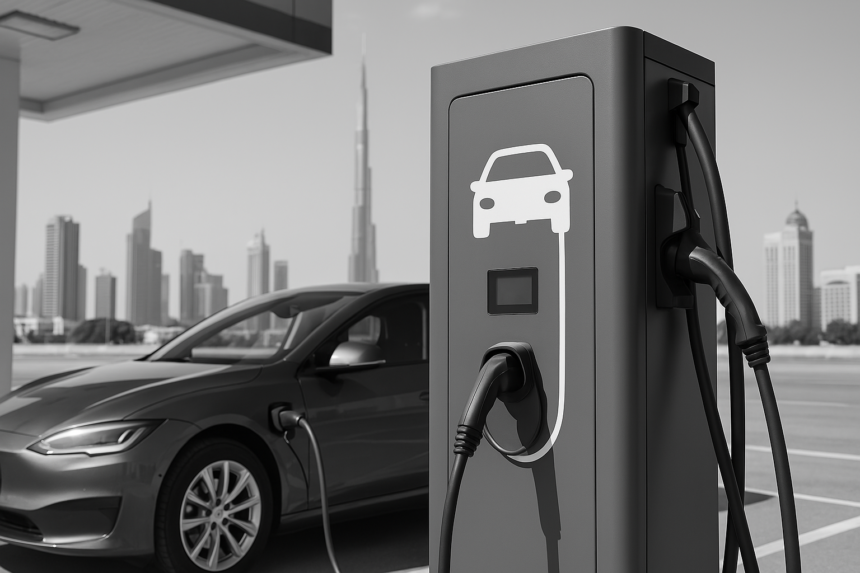How to Structure an EV Charging Station Agreement in the UAE
As electric vehicles (EVs) gain popularity in the UAE, the need for well-structured EV charging station agreements has never been more urgent. Whether you’re a landowner, a Charge Point Operator (CPO), or an equipment supplier, having a clear legal agreement in place ensures smooth collaboration, compliance, and profitability. In this guide, we’ll walk you through how to structure an EV charging station agreement in the UAE, highlighting key clauses, stakeholders, and legal considerations.
Why a Well-Drafted Agreement Matters
A comprehensive EV charging station agreement protects the interests of all parties involved. It reduces misunderstandings, aligns expectations, and provides a legal framework for resolving disputes. Given the UAE’s unique regulatory environment, failing to cover critical aspects like DEWA approval, licensing, or data sharing can lead to costly delays or non-compliance.
Key Parties Involved
An EV charging station agreement typically involves the following stakeholders:
- Landowner: Owns the property where the EV charging station will be installed.
- Charge Point Operator (CPO): Installs and manages the operation of the EV charging station.
- Equipment Supplier: Provides the hardware and software components of the station.
- Operator or Service Provider: Handles customer service, maintenance, and technical support.
In some cases, a single entity may take on more than one role. Clearly defining each party’s responsibilities is crucial.
Essential Clauses to Include
To avoid future disputes and ensure operational success, your agreement should include the following key clauses:
1. Site Access and Installation
- Duration and scope of access rights
- Installation timeline
- Responsibility for obtaining permits and utility approvals
2. Liability and Insurance
- Allocation of risks in case of accidents, outages, or third-party claims
- Mandatory insurance coverage for all parties
3. Warranty and Maintenance
- Warranty terms for hardware and software
- Maintenance obligations and service level agreements (SLAs)
- Downtime and penalty clauses
4. Revenue Sharing and Payment Terms
- Revenue split between the landowner and CPO
- Billing methods and reconciliation schedules
- Treatment of taxes and government fees
5. Termination and Exit Strategy
- Grounds for termination
- Notice periods
- Removal of equipment and site restoration
Compliance with UAE Regulatory Framework
Setting up an EV charging station in the UAE requires adherence to specific laws and regulations. Be sure to address the following:
- DEWA Approvals: Required in Dubai for grid connection and compliance with technical standards.
- Municipality Approvals: Including site development permits and signage permissions.
- Federal and Emirate-Level Laws: Ensure all clauses align with UAE civil and commercial law.
Intellectual Property, Licensing, and Data Sharing
Modern EV chargers often involve software, user data, and backend analytics. Clarify these elements in your agreement:
- Intellectual Property (IP): Ownership and licensing rights over software and systems.
- Data Sharing: Permissions and obligations concerning user and usage data.
- API Access: If third parties need to integrate with the system, define the scope and limitations.
Common Pitfalls to Avoid
Avoid these frequent mistakes when drafting EV charging station agreements:
- Vague Roles and Responsibilities: Always define each party’s role in detail.
- Ignoring Regulatory Approvals: Skipping DEWA or municipality permissions can halt the project.
- Unclear Revenue Terms: Ambiguities in payment structures can lead to conflict.
- Lack of Exit Strategy: Without clear termination clauses, dismantling or changing partners becomes messy.
Conclusion
Drafting an EV charging station agreement in the UAE involves more than just boilerplate terms. It requires a detailed understanding of the roles, legal environment, and technological components unique to EV infrastructure. By carefully structuring your agreement with clear responsibilities, strong compliance provisions, and robust commercial terms, you can build a foundation for long-term success.



Leave a Reply